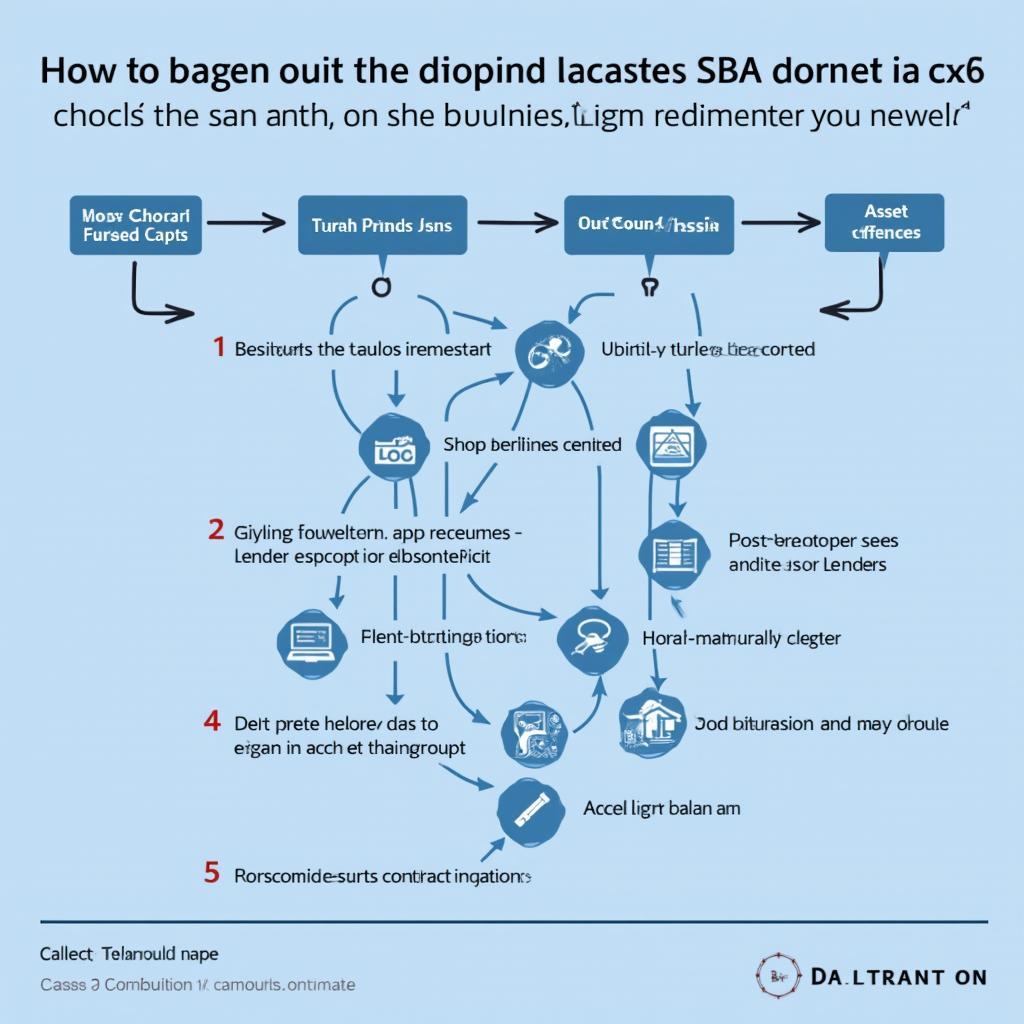
What Happens to an SBA Loan if Business Closes Down?
When a business financed by an SBA loan closes, the consequences can be significant and depend on several factors, including the type of SBA loan, the reason for closure, and the business’s assets. Understanding these implications is crucial for both borrowers and lenders.
Understanding SBA Loan Obligations After Business Closure
The Small Business Administration (SBA) guarantees a portion of loans made by partner lenders to small businesses. This guarantee doesn’t make the loan disappear if the business fails. Borrowers remain personally liable for the debt, even after business closure. This means lenders can pursue personal assets to recoup the remaining balance.
Types of SBA Loans and Their Implications on Closure
Different SBA loans have varying terms and conditions affecting what happens upon business closure.
7(a) Loans
The most common SBA loan, the 7(a), often requires a personal guarantee. If the business closes, the lender can pursue the borrower’s personal assets to satisfy the outstanding debt. Liquidation of business assets is the first course of action, but the personal guarantee ensures the lender can still recover losses if the business assets are insufficient.
504 Loans
504 loans are typically used for fixed assets. These loans involve a Certified Development Company (CDC), which holds a portion of the loan, and a conventional lender holding the remaining portion. Upon closure, similar to 7(a) loans, business assets are liquidated, and any shortfall can be pursued through the borrower’s personal guarantee.
Microloans
Microloans are smaller loans often used for working capital. While they may have less stringent requirements, borrowers are still responsible for repayment. Business closure doesn’t absolve the borrower of this responsibility. The SBA and the intermediary lender will work with the borrower to explore repayment options, but personal assets may still be at risk.
Navigating the SBA Loan Closure Process
When facing business closure, borrowers should communicate with their lender immediately. Open communication can help explore options such as loan modification, deferment, or a structured workout plan.
Liquidation of Assets
Typically, the lender will liquidate the business’s assets to pay off the loan. This can involve selling equipment, inventory, and other business property. The proceeds from the liquidation are applied to the outstanding loan balance.
Personal Guarantee and Debt Collection
If the liquidated assets are insufficient to cover the loan balance, the lender can pursue the borrower’s personal assets based on the personal guarantee. This can include bank accounts, personal property, and even real estate.
 SBA Loan Closure Process
SBA Loan Closure Process
Options for Borrowers Facing Business Closure
While business closure is a difficult situation, borrowers have options to consider.
Loan Modification
A loan modification can involve adjusting the loan terms, such as extending the repayment period or reducing the interest rate, to make the loan more manageable.
Offer in Compromise (OIC)
An OIC involves negotiating with the lender to settle the debt for a lesser amount than the full balance. This option is typically considered when the borrower can demonstrate financial hardship.
Bankruptcy
Bankruptcy is a legal process that can provide relief from debt. However, it can have long-term consequences on the borrower’s credit score and financial future. It’s essential to consult with a bankruptcy attorney to understand the implications fully.
“Understanding the terms of your SBA loan, especially the personal guarantee, is critical from the outset,” says Ms. Nguyen Thi Phuong Thao, Senior Financial Advisor at VietFinance Group. “Being proactive and communicating with your lender at the first sign of trouble can often help mitigate the negative impacts of business closure.”
“Don’t shy away from exploring options like loan modifications or an OIC,” adds Mr. Tran Van Duc, Loan Specialist at Sacombank. “These options can sometimes help avoid the more severe consequences of default.”
Conclusion
Closing a business with an SBA loan can be a complex process with potentially significant consequences. Understanding the terms of your loan agreement, especially the personal guarantee, is crucial. Open communication with the lender and exploring available options can help navigate this challenging situation and minimize the financial impact. Being informed and proactive is key to protecting your personal finances when facing business closure.
FAQ
-
What is a personal guarantee on an SBA loan? A personal guarantee holds the borrower personally responsible for repaying the loan even if the business fails.
-
Can I negotiate with the lender to reduce the amount I owe on an SBA loan after business closure? Yes, you can explore options like an Offer in Compromise (OIC).
-
What happens if I don’t pay my SBA loan after business closure? The lender can pursue your personal assets through debt collection agencies or legal action.
-
Does bankruptcy eliminate my SBA loan debt? Bankruptcy can discharge some debts, including SBA loans, but it’s important to consult with a bankruptcy attorney to understand the specific implications.
-
What are the long-term consequences of defaulting on an SBA loan? Defaulting on an SBA loan can severely damage your credit score, making it difficult to obtain financing in the future.
-
Are there resources available to help small business owners facing closure? The SBA and other organizations offer resources and guidance for struggling businesses.
-
How can I avoid personal liability for an SBA loan? Most SBA loans require a personal guarantee, making it difficult to avoid personal liability entirely. However, careful planning and responsible financial management can mitigate the risks.




